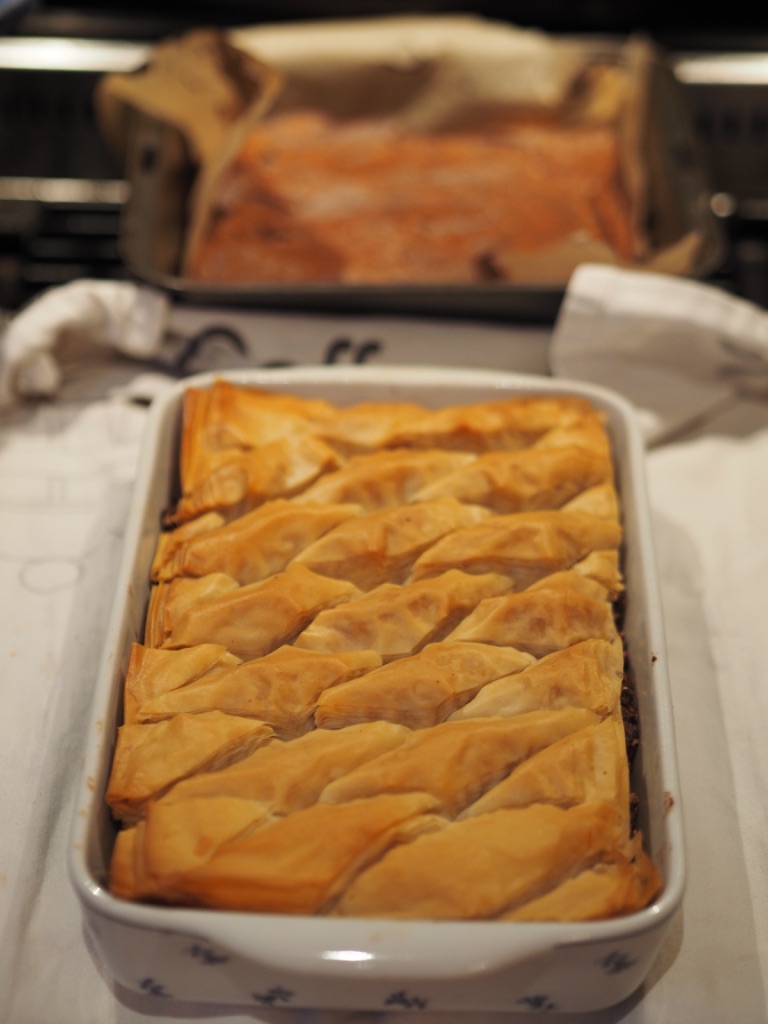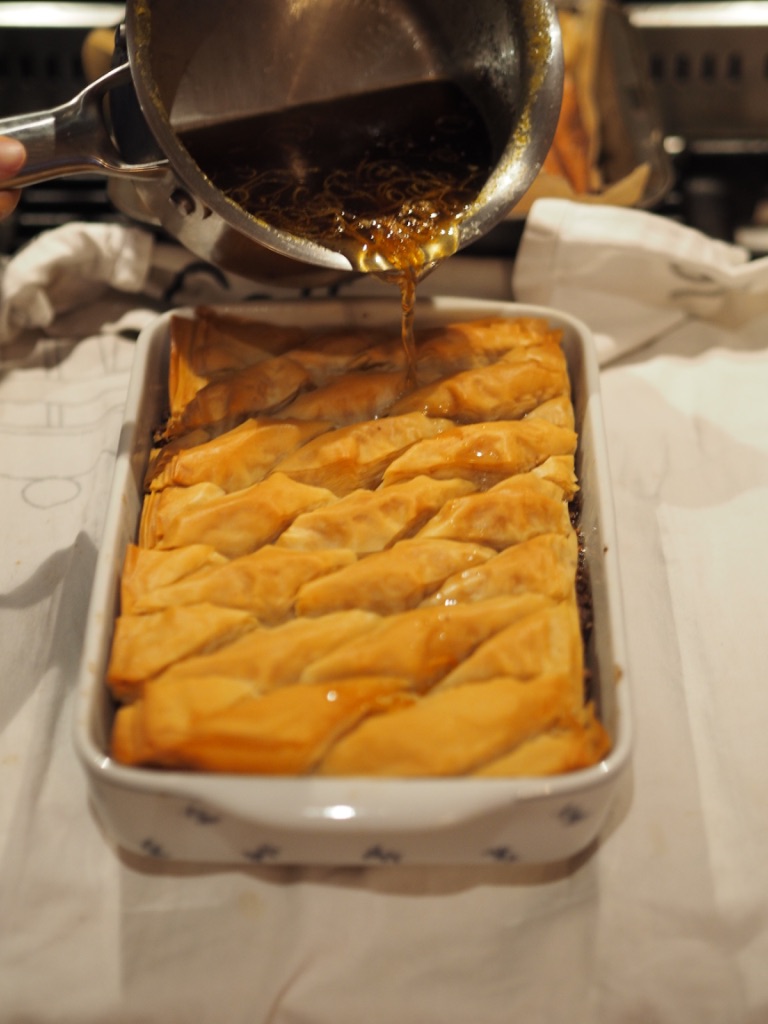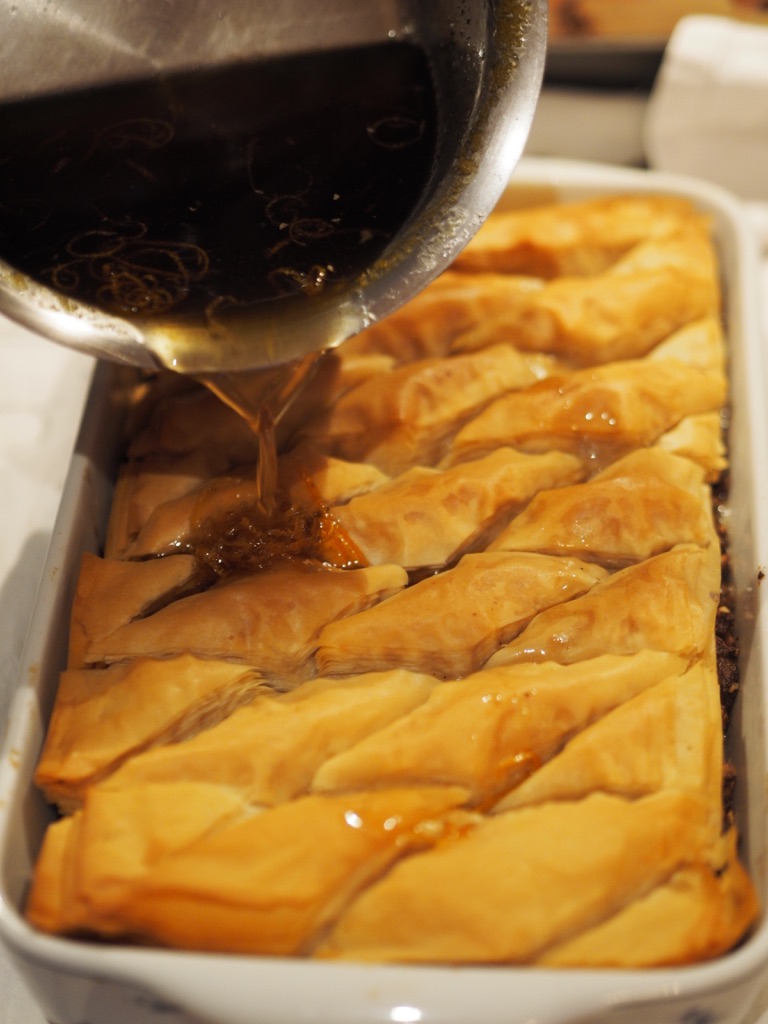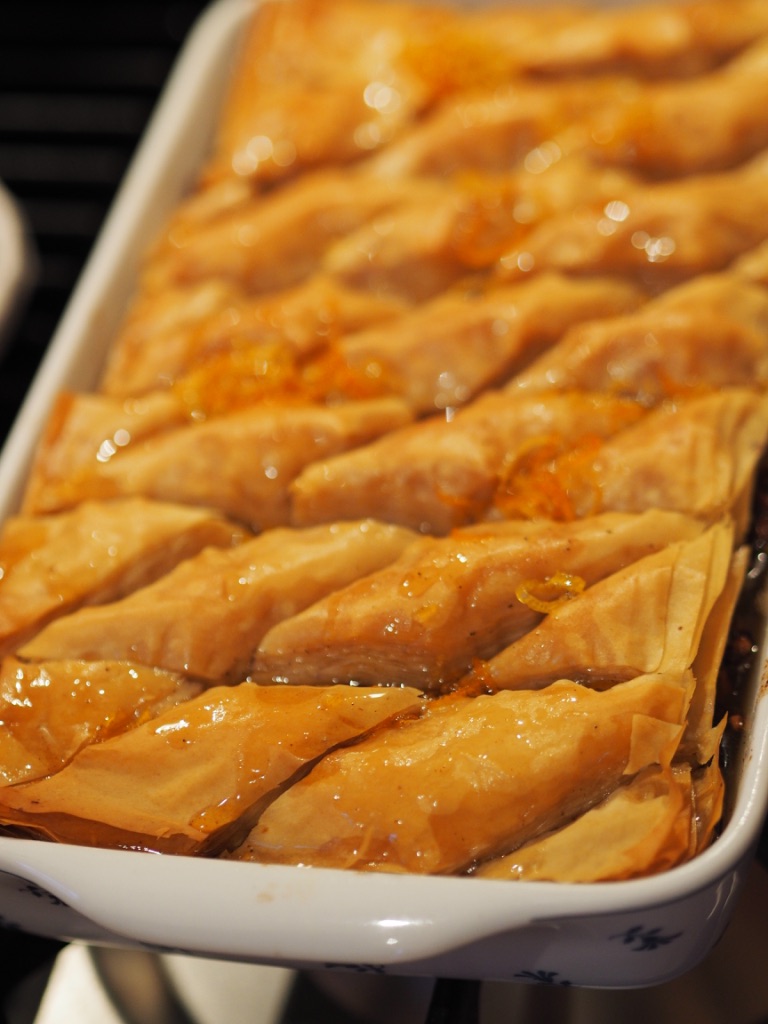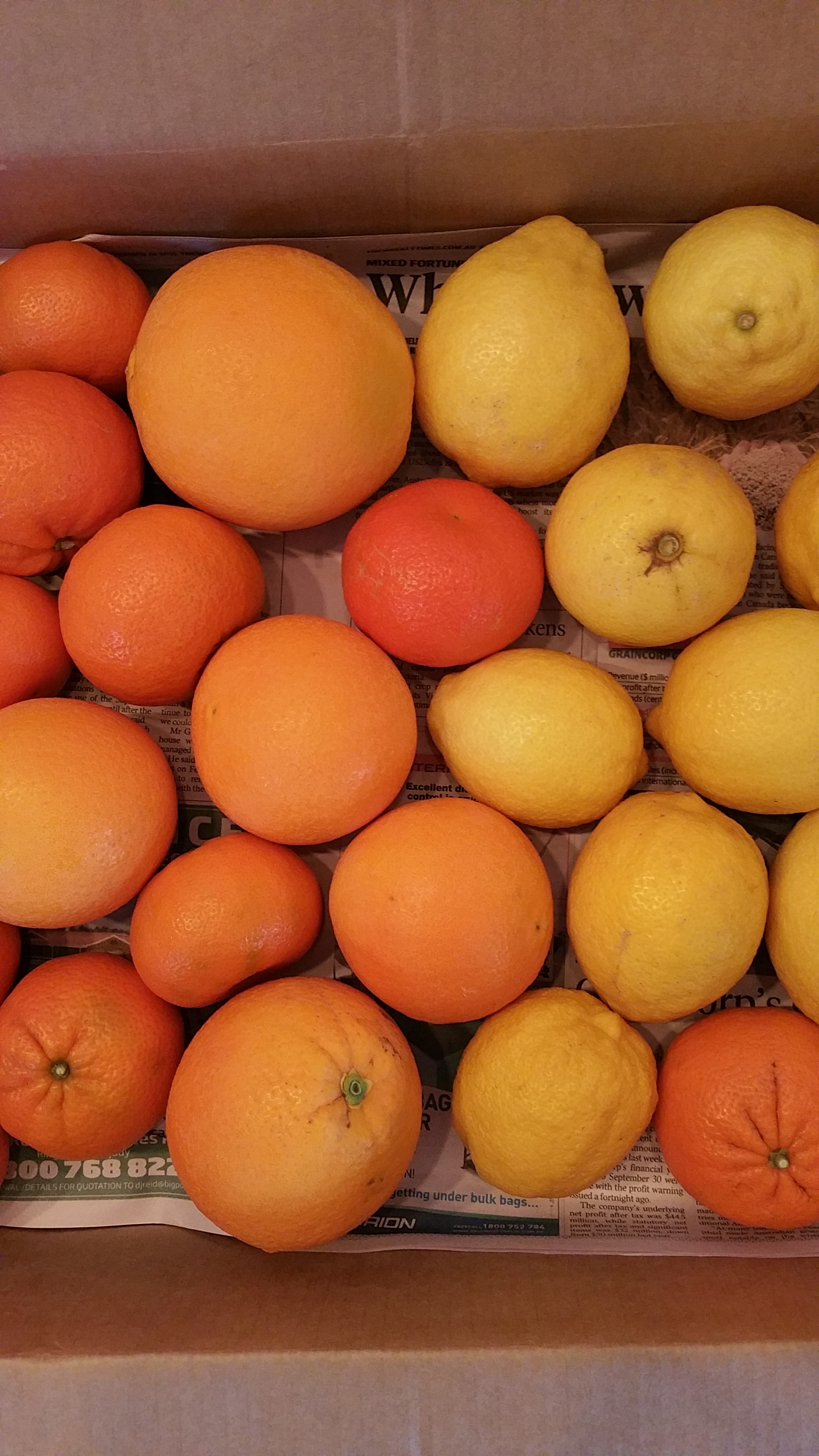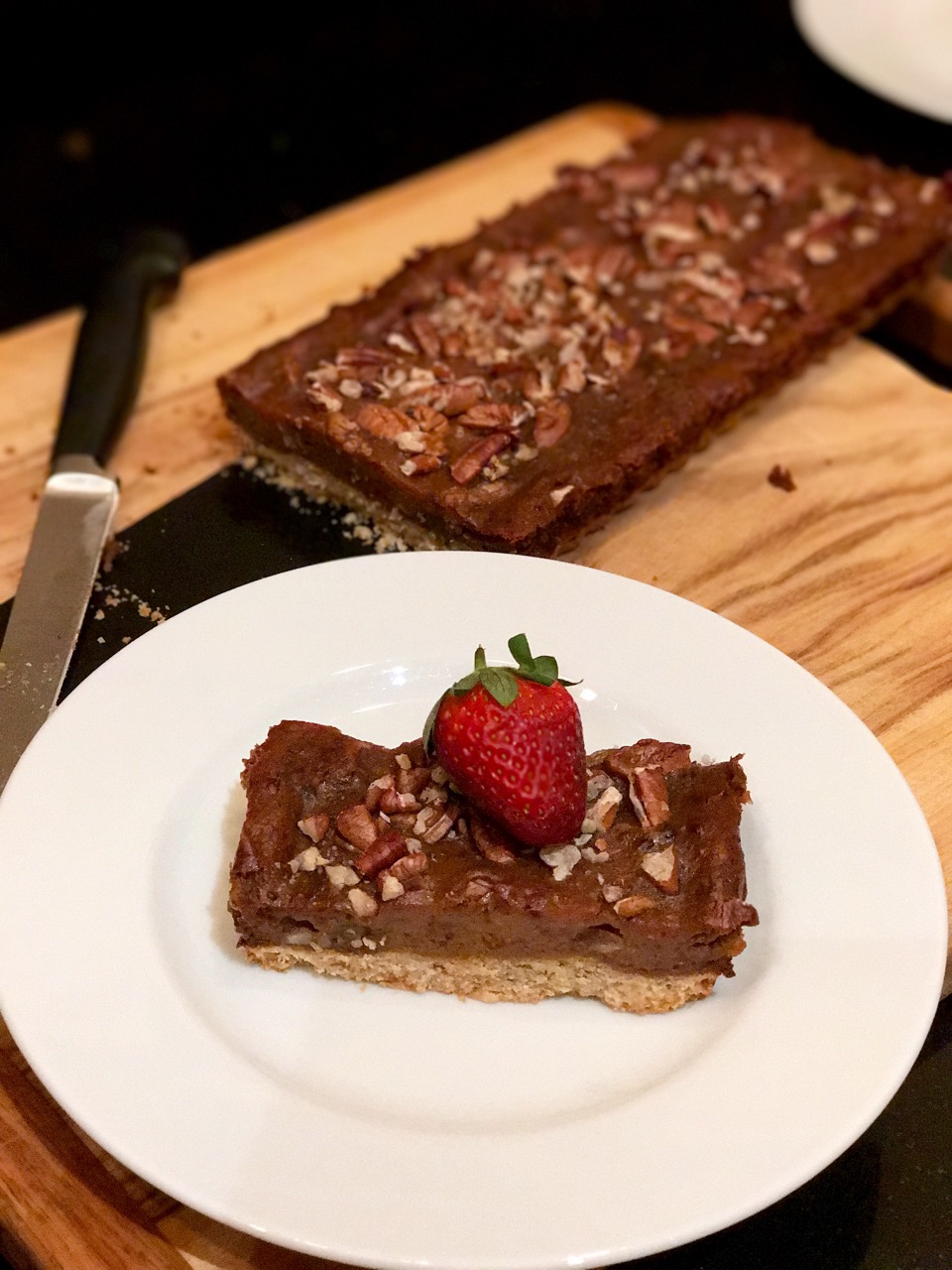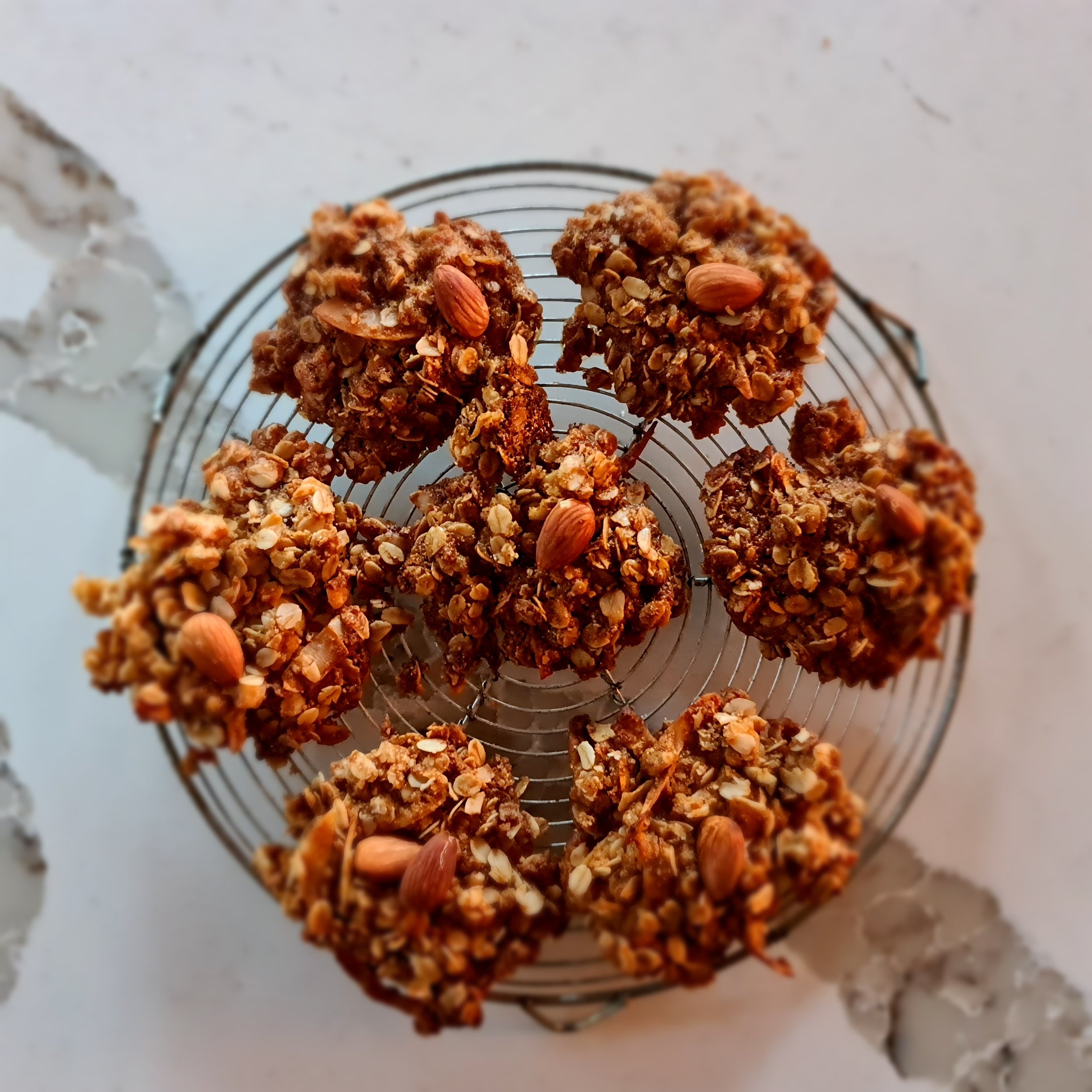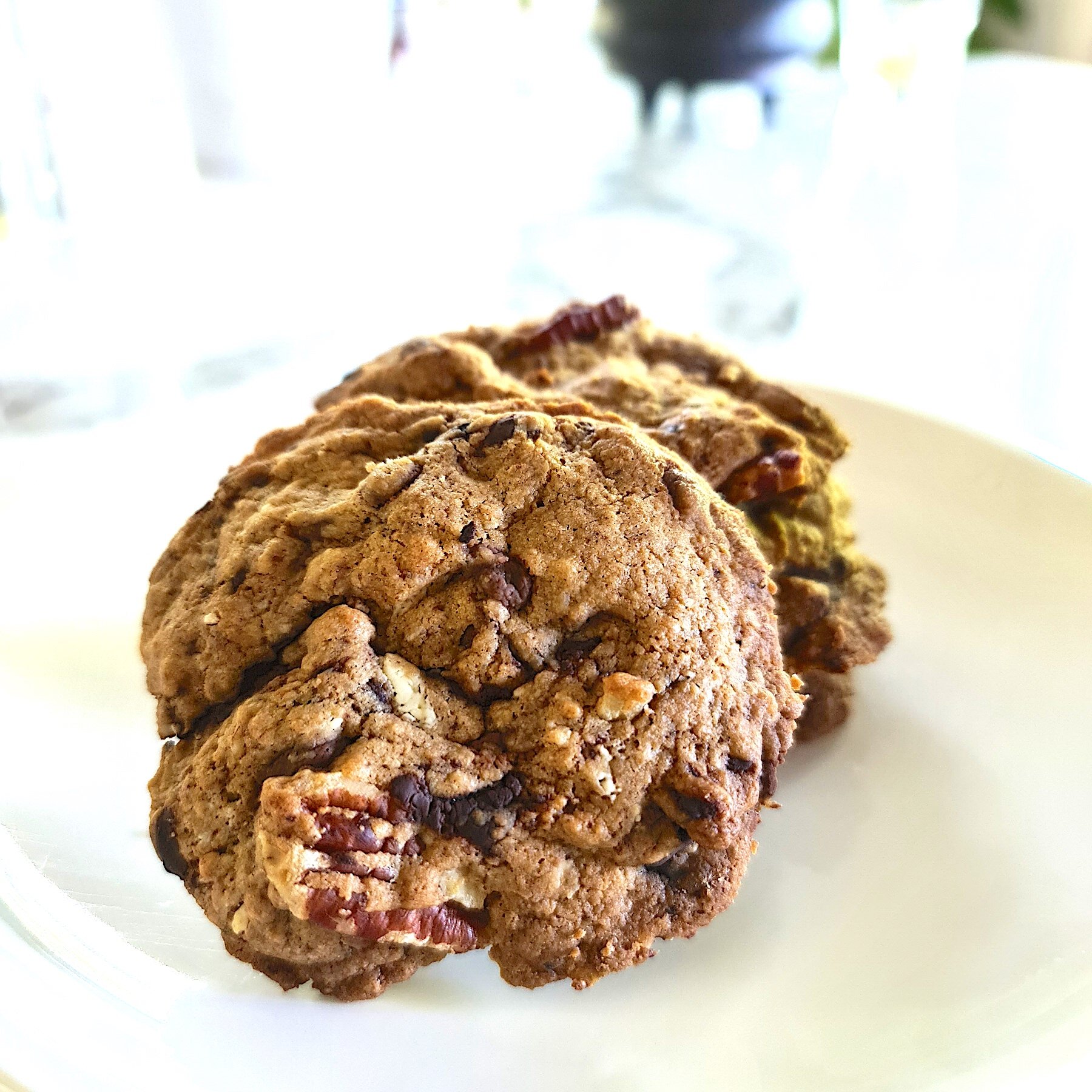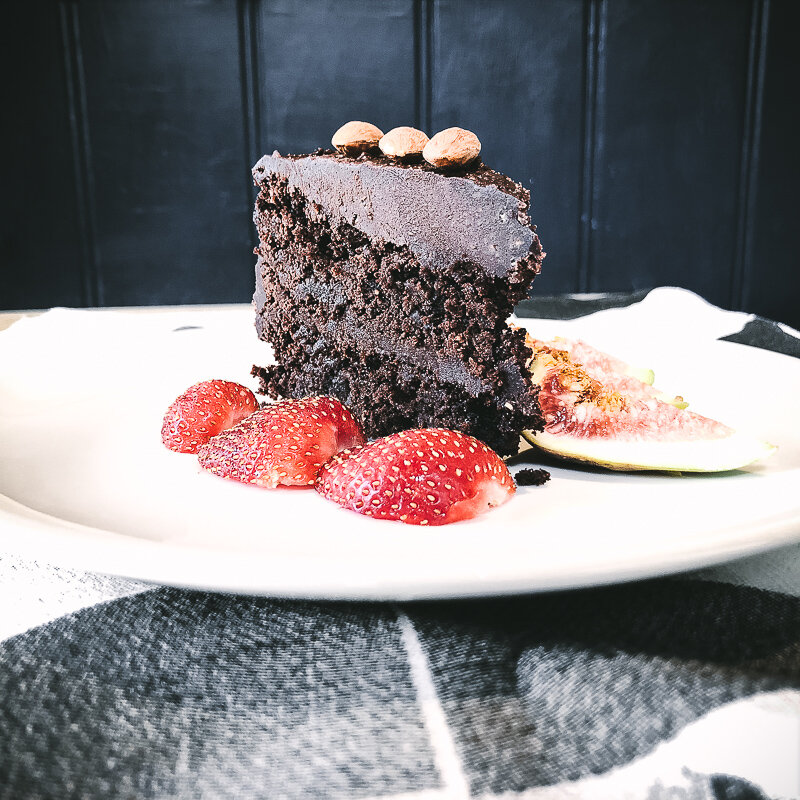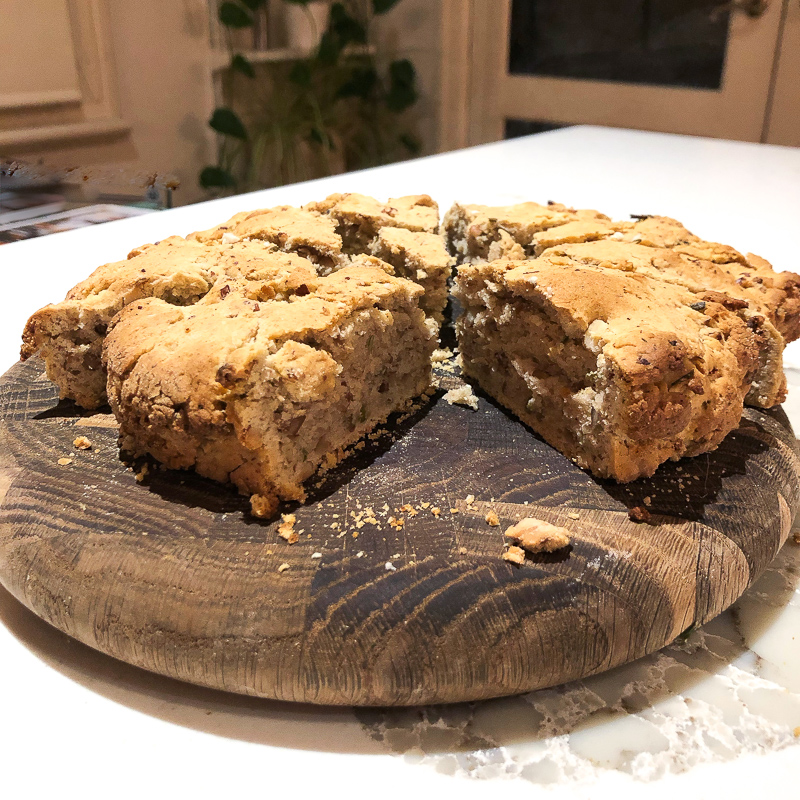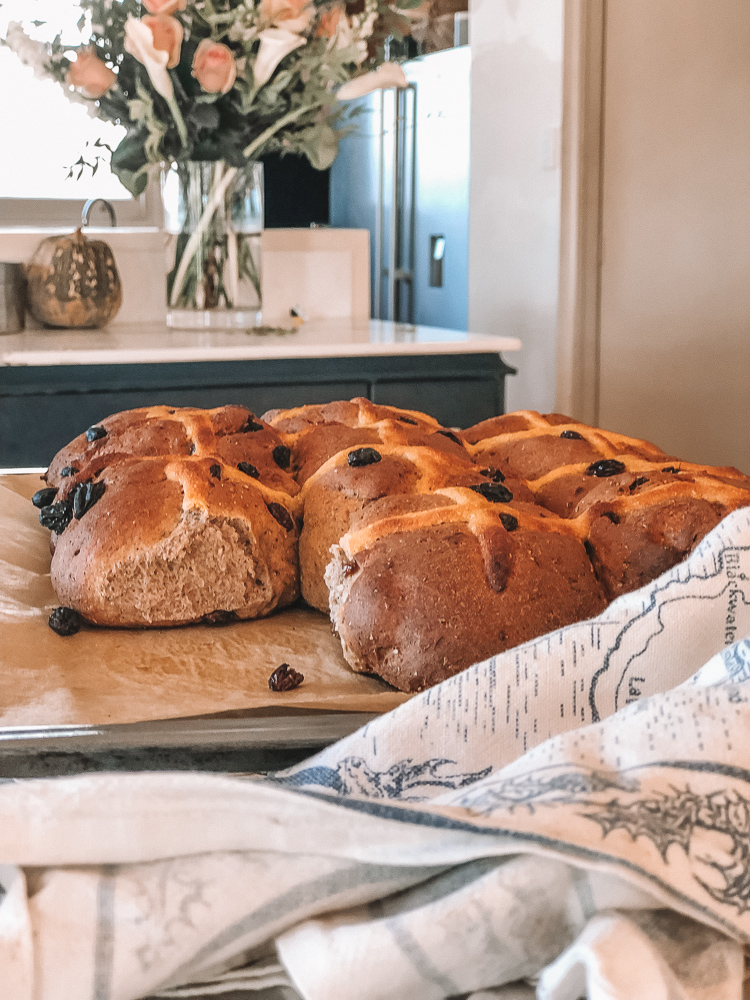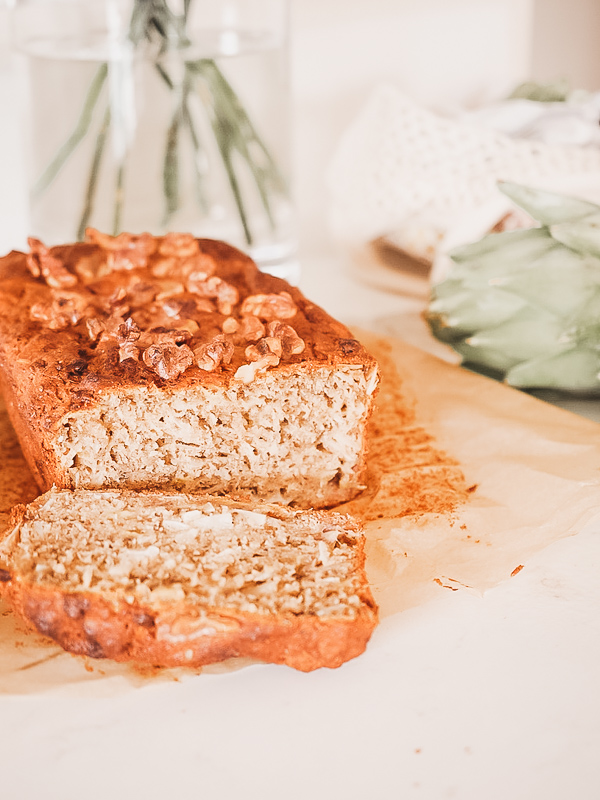Vegan Baklava
This is the recipe for my very famous Baklava. For years, family and friends have requested that I make this glorious confection for special occasions.
If you are a fellow lover of baklava, but want to make a vegan version, do try this recipe. It's a very rich sweet treat, perfect with black coffee, and while it will look and taste impressive, it's actually quite simple to make.
This version uses a spiced citrus syrup, which gives it a full depth of flavour. You can use lemons, oranges, tangerines, mandarins - whatever citrus you have in season - but as the recipe calls for lots of zest, make sure you have organic fruit so you can use the skin.
Depending on the sweetness of the fruit, you may need more or less sugar in the syrup. So start with a little, taste and add more until you get the perfect mix of tangy sweetness.
WALNUT & ALMOND CITRUS SPICED VEGAN BAKLAVA
BAKLAVA INGREDIENTS
1 packet 375gm phyllo pastry
1 cup walnuts
1 cup almonds
½ cup refined coconut oil
½ cup brown rice syrup
2 teaspoons ground cinnamon
2 teaspoons ground cloves
½ cup extra virgin olive oil, for brushing
SYRUP INGREDIENTS
Zest and juice of 6 small citrus (mix of lemon, orange, lime, tangelo, mandarin — the more the merrier)
1 ½ cups raw or rapadura sugar (add more if using more lemons and less if using oranges)
½ cup golden syrup or brown rice syrup
3 star anise, whole
1 cinnamon stick
2 teaspoons ground cloves
METHOD
Remove phyllo pastry from fridge and allow to thaw to room temperature for at least 1 hours. (This will stop the pastry from cracking, and make it easier to handle.)
Lightly brush a baking pan with olive oil and set aside. I use a lasagna pan, but you can use a baking tin too. My lasagna pan is about 30 x 18cm - but this is a very flexible recipe so you can make it in a dish a bit bigger or smaller to suit what you have on hand. If you have leftover trimmings of pastry, you can layer them up in between.
Preheat oven to 180 degrees C.
Combine nuts, spices, coconut oil, syrup in a food processor and whiz until the nuts are broken into small chunks. Do not whizz too long or it will turn into nut butter. About 2 minutes should be enough - but this will depend on your machine.
Unroll phyllo pastry and roughly separate into two piles. Cover each with a damp tea towel.
Lay the first two pieces of pastry into the dish. Lightly brush with more olive oil, and lay two more sheets on top. Continue layering, brushing every second sheet with olive oil, until the first pile of pastry is used up.
Dollop nut mixture on top, spreading out evenly with the back of a spoon.
Repeat layering the remaining pastry from the second pile — again brushing every second sheet with olive oil.
With a short, sharp knife cut through the pastry to make diamonds approximately 5 x 2.5 cm in size. Make sure to cut all the way though to the bottom layer of pastry.
Bake for approximately 40 minutes, or until lightly golden.
While the baklava is baking, make the syrup by combining all the syrup ingredients in a small saucepan. Bring to the boil, stirring gently until the sugar is dissolved. Turn down the heat to a simmer and continue simmering for 15 minutes, stirring occasionally, until the mixture becomes thick and syrupy.
Remove the whole spices with a slotted spoon. Pour the hot syrup over the hot baklava as soon as it is baked and comes out of the oven.
Allow the baklava to cool to room temperature, then refrigerate until required.
MAKES ABOUT 25 PIECES
We find that our lasagna dish is the perfect size for this dish. It's about 30 x 18 cm. But you can use any baking dish which has high sides to catch all the yummy syrup.
Store the baklava in the fridge, which will allow the flavours to develop, if you're not going to eat it straight away. Some people prefer it cold from the fridge, some prefer it at room temperature - it's up to you.
While baklava is traditionally made with honey as a sweetener, using brown rice or golden syrup are almost identical tasting substitutes, which are great vegan friendly alternatives. I doubt most people could actually tell the difference in flavour, especially as this version of baklava is beautifully citrusy & spiced.
Refined versus unrefined coconut oil versus dairy butter.
Even when we were vegetarian (before becoming vegan) I used to use olive oil between the layers of phyllo pastry rather than butter, as it is less rich - and the general verdict amongst family and friends was that it tasted better. It's certainly a lot easier to make than having to melt butter too.
Subbing refined coconut oil in the nut filling instead of butter is an easy swap too, because the the oil whizzes up with the nuts so doesn't need to be melted first. The lack of flavour in the refined coconut oil allows the fresh nut flavours and rich spices to really shine through, while it also helps to make the pastry layers become light and crispy. It's important to use the refined, expeller pressed version of coconut oil in this dish, unless you adore the flavour of coconut - in which case you can use the unrefined version. (Contrary to what one may think when reading 'refined', in this case it isn't a less wholesome product, as expeller-pressed refined means the coconut oil has been filtered to remove the solid particles in the coconut oil which give it the strong taste and aroma. Now in some dishes, that's fine and actually a great thing (like curry) but in the case of delicate pastries, I prefer not to have that strong flavour. But I prefer to buy expeller-pressed refined coconut oil, which doesn't use bleach or chemicals to refine it, even though it is a little more expensive, because I'd rather use less, of better quality, and know that the family is eating well.
If you prefer, you can also use a good quality vegan butter instead of the refined coconut oil. In which case, substitute equal quantities.
and the last word?
Delicious! That is all. Now go make it!
If you try the recipe, please share your thoughts in the comments. Your feedback is helpful to others.



